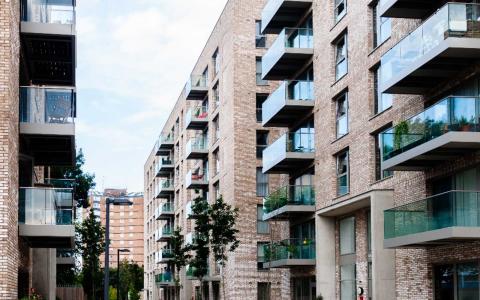Utility and Operating Costs: “Nebenkosten”
Every year, you get your utilities bill (Nebenkostenabrechnung or Betriebskostenabrechnung). It shows how much hot water and electricity you really used. You already pay the estimated amount every month with your ‘warm rent’ (Warmmiete). If you used more than you paid for, you get an invoice. If you use less, you will get a refund.
Within the last three years, utility and operating costs have significantly increased. Below you will find a list of the main costs that are charged to the tenant.
Costs for heating vary a lot as oil and gas heating are very expensive; geothermal heating is most cost effective. In addition, costs vary depending on how well the property is insulated.
The grid below shows the average costs and should help in the calculation of the lease/ utility budget.
* For rented apartments only, in rented houses, tenant is responsible for these services.
** Varies depending on the heating system (oil, gas, district heating or geothermal/solar heating)
Payment
Your rent will always be due at the first of the calendar month, regardless of weekends and holidays. Many landlords will send you a SEPA-Lastschriftmandat along with your contract. You can fill in this form with your bank details and sign it, then the landlord will automatically take your rent from your account on the date your specified on the form. If you ever want to raise a query about a payment that has been taken, you have until 8 weeks after the payment was made to do so.
Alternatively, you can set up a direct debit with your own bank. You can do so via online banking or in a branch. This way, you do not have to remember making your rent payments and you can amend and cancel it when your need to.
You cannot pay your deposit or monthly rent by credit card, cheque, cash or in any other way than by bank transfer.
Rental Deposit
In Germany, the standard rental security deposit that you give your landlord is three months ‘cold rent’ (Kaltmiete). Yes, THREE months of the rent price will be given to your landlord as a security deposit. The deposit must be transferred before the move in and key handover date. The landlord can ask you to pay the total amount upfront or allow you to pay the amount in three instalments.
Rental Contract
Your rental contract is a legally binding contract in its German original form. We will provide you with an English summary of the most important aspects of your lease, however, the original German version will be the legal basis. Verbal agreements with your landlord are not valid.
Please also note that many apartment management companies and landlords still insist on signed original documents, meaning you will have to send them by regular post.
Please do not hand over any money until the lease has been signed by the Tenant and countersigned by the Landlord. Only then should the security deposit and rent be transferred.
Length of lease
You’ll come across two major types of rental agreements in Germany: indefinite (unbefristet) and fixed-term (befristet). In either case, keep in mind that minimum rental periods in Germany can be lengthy. Most of the German landlords will demand an initial lease period of 2 years. Indefinite rental agreements in Germany have no termination date. That means that tenants can end their lease by providing a notice. However, a landlord can only terminate a rental contract under specific circumstances. Fixed term rental agreements in Germany have move-in and move-out dates outlined in the contract. Neither party is obliged to renew the lease agreement after its expiration.
Your responsibilities as a Tenant
Insert Packimpex video under subtitle: https://youtu.be/RK2ZBhJMQRw
It is the tenant's responsibility to keep the property maintained in the same state as when moving in. Damages caused by the tenant due to neglect, wrong heating and airing behaviour must be paid for by the tenant and might be deducted from the deposit. So be sure to treat your apartment properly and report any damages so they can get fixed in time.





